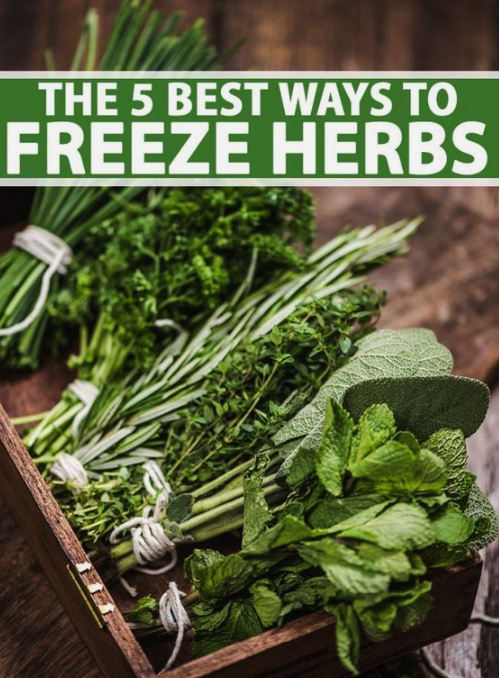There’s nothing quite like the satisfaction of growing a lush herb garden, tending to each plant with care and witnessing it flourish. The beauty of homegrown herbs, however, comes with a catch – an abundance that can be challenging to use up before they start to wither away. Fortunately, freezing methods come to the rescue, allowing us to preserve the vibrant tastes and aromas of our freshly harvested herbs throughout the seasons.
Freezing herbs offers a range of benefits, including an extended shelf life, retained freshness, and the convenience of having a stash of ready-to-use herbs at our fingertips. In this article, we will explore the best methods for freezing herbs straight from the garden, ensuring that every ounce of their natural goodness is retained, ready to grace our recipes with an unmatched freshness.
Flash Freezing:
Flash freezing is a simple yet effective method to freeze herbs individually, ensuring they retain their texture and taste. To do this, start by washing the herbs gently and patting them dry with paper towels. Lay the herbs in a single layer on a baking sheet or tray lined with parchment paper. Place the tray in the freezer for about 1 to 2 hours until the herbs are fully frozen. Once frozen, transfer the herbs into labeled freezer bags or airtight containers, removing as much air as possible. Flash freezing prevents the herbs from sticking together, allowing you to take out the required amount without defrosting the entire batch.
Herb Vinegar:
Herb vinegar is an innovative way to preserve the flavors of your favorite herbs. Start by thoroughly cleaning and drying the herbs. Fill a sterilized glass bottle with the herbs and then pour in your choice of vinegar, such as white wine vinegar or apple cider vinegar. Seal the bottle tightly and store it in a cool, dark place for several weeks, allowing the herbs to infuse the vinegar. After the infusion period, strain the vinegar to remove the herbs and transfer the flavored vinegar to a clean bottle or jar. Keep the herb vinegar in the refrigerator for up to six months, using it to add a delightful herbal tang to salads and marinades.
Herb Oil Cubes:
Herb-infused oil cubes are a fantastic way to infuse dishes with the essence of fresh herbs while keeping them handy in the freezer. Finely chop the herbs of your choice and place them into the compartments of an ice cube tray. Fill each section with olive oil or your preferred oil, ensuring the herbs are well-submerged. Freeze the tray until the cubes are solid. Once frozen, transfer the herb oil cubes to a resealable freezer bag, labeled with the herb type and date. Use these cubes to add instant flavor to sauces, sautés, and roasted vegetables.
Herb Purées:
For delicate herbs like basil, cilantro, and parsley, turning them into herb purées before freezing is a fantastic option. Wash and thoroughly dry the herbs before blending them with a little oil or water until you get a smooth consistency. Pour the purée into ice cube trays or small containers, leaving some space at the top for expansion during freezing. Once frozen, transfer the cubes or portions to labeled freezer-safe bags or containers. These herb purées are perfect for soups, stews, and salad dressings, providing a burst of fresh herb flavor.
Herb Butter:
Herb butter is a delicious and versatile way to freeze and preserve herbs. Finely chop your chosen herbs and mix them thoroughly with softened butter. Shape the herb butter into a log or press it into small molds before wrapping it tightly in plastic wrap or wax paper. Place the wrapped herb butter in a labeled resealable bag or airtight container before storing it in the freezer. When needed, slice a piece of the herb butter and let it melt over grilled meats, fish, or steamed vegetables, adding a luscious herbal twist to your dishes.
